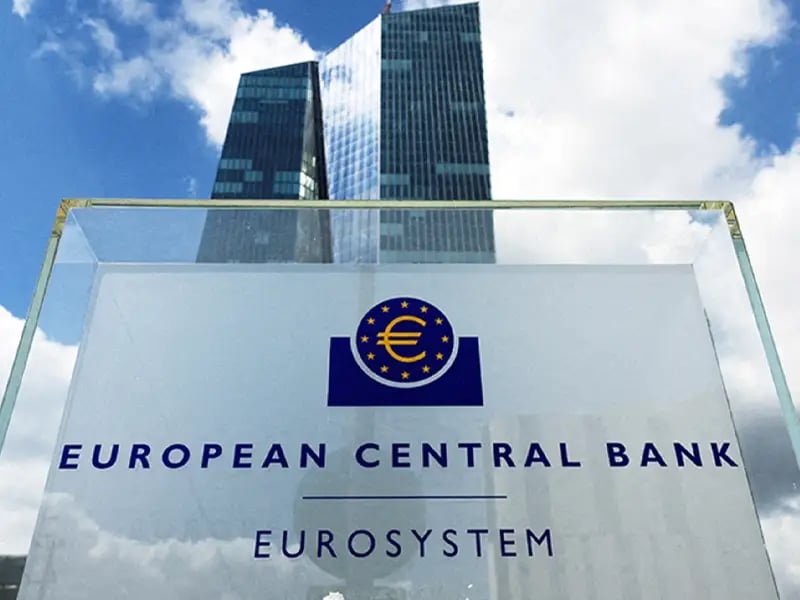ECB Slashes Rates as Trade Tensions Cloud Eurozone Outlook
The European Central Bank has cut its main interest rate from 2.5% to 2.25%, marking the seventh reduction in just 12 months. The move comes amid escalating global trade tensions triggered by U.S. tariffs, which have injected fresh uncertainty into an already shaky global economic outlook.
While inflation in the eurozone has steadily declined from its peak in late 2022 to 2.2% year-over-year in March, bringing it close to the ECB’s 2% target, the central bank remains concerned about the broader impact of volatility on household and business sentiment. Financial conditions across the 20-member euro area are tightening as market instability and weakening confidence take hold.
The ECB's latest decision reflects growing anxiety that trade disruptions could slow investment and consumption, both of which are key engines of European growth.
The bank has said that continued uncertainty may lead to a pullback in lending and capital flows, further dampening prospects for recovery. Analysts suggest that more rate cuts may follow in 2025 if protectionist policies continue and inflationary pressures remain muted.
What Does This Mean for Me?
At the same time, the World Trade Organization and other global institutions have echoed similar concerns, warning that tariff escalations could spark a deflationary spiral in manufactured goods and derail recovery momentum.
With the euro trading around $ 1.09 against the U.S. dollar and market yields softening, investors are now recalibrating their expectations for monetary easing for the remainder of the year.

More News
.webp)
Japan’s Rate Shift Is Rippling Through Global Bond Markets

China’s Growth Engine Stalls as Consumers and Investors Pull Back

Egypt’s Recovery Gains Traction as Household Pressure Lingers

OECD Warns AI and Tariffs Will Test the Global Economy

Zero Tariffs, Higher Drug Bills as US and UK Reset Pharma Trade

Catastrophe Bonds Go Global as Climate Risk Meets Yield Hunting
.webp)
Canada Shields Steel and Lumber Industries From Tariffs
